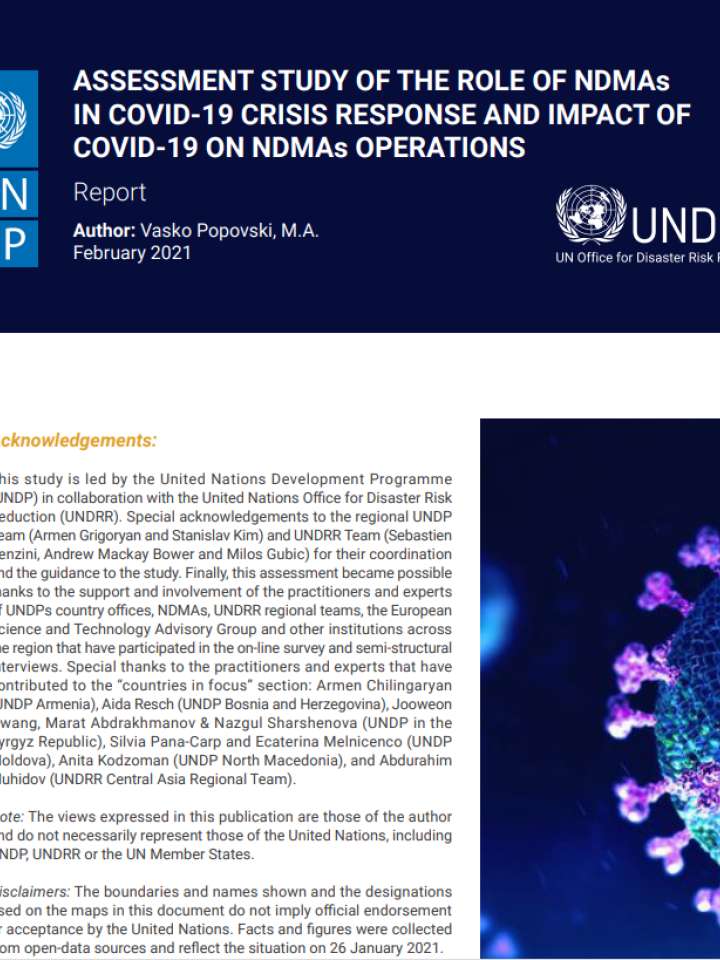Assessment Study of the Role of NDMAs in COVID-19 Crisis Response and Impact of COVID-19 on NDMAs Operations
As an emerging systemic risk and “a crisis like no other”, the COVID-19 pandemic is affecting the countries and territories around the globe in an unprecedented way. The “pandemic crisis of our lifetime” is causing record loss of lives and severe human suffering with more than 2.1 million deaths and 100 million people affected (as of 02 February 2021), leaving long-term consequences and impacting the societies and economies at their core i.e. biggest economic decline since the Great Depression, heavily impacting the communities exacerbating the existing and creating new vulnerabilities. The countries in Europe and Central Asia1 have not been spared: since the first case reported in North Macedonia on 26 February 2020, there are more than 5.8 million cases with an approximate mortality of 1.4% of reported cases or 82 thousand deaths (as of 26 January 2021). All countries were affected with progressive transition from incidental cases to widespread local transmissions throughout all regions. Consequently, the resilience of their societies and communities are being severely affected resulting in falls in gross domestic products, decreased income generation, increased unemployment and poverty rates, fewer remittances, reduction in access to services, increased food insecurity, worsened provision of risk reduction and emergency management services, etc.
The COVID-19 pandemic crisis emphasized the crucial role that the national and local governments play in mitigation and response to this type of complex crises, which impacts are cascading across the regions and countries, challenging their preparedness and response systems and capabilities. The pandemic crisis brought anticipation, preparation, response and recovery needs to high-consequence, low-probability risk at the forefront of the resilience agenda, while strengthening the importance of robust risk governance. The approach towards this crisis and many more that we will face in the future needs, to begin with, the re-coding of our approach to disaster risk governance towards the designing of new models for mitigation, preparedness, response and recovery from complex disasters and high-consequences, low-probability events: the overall imperative will be to strengthen disaster risk governance for long-term resilience goals, with a key focus on the systemic and emerging risk.
This Assessment Study is commissioned by the United Nations Development Programme (UNDP) through its Istanbul Regional Hub and the United Nations Office for Disaster Risk Reduction (UNDRR) through its regional office for Europe and Central Asia. The study provides an overview and findings of the comprehensive analysis of the role and effectiveness of the National Disaster Management Authorities (NDMAs) across the SouthEastern Europe, Eastern Europe, South Caucasus and Central Asia region (Europe and Central Asia - ECIS) in the response and recovery efforts to the COVID-19 pandemic crisis. Its findings aim to support UNDP, UNDRR, UNCTs, NDMAs and other stakeholders in the region to draw lessons from the implementation approach to the COVID-19 response and forwardlooking recommendations for the prevention, mitigation, preparedness and response to the future pandemic/ biohazards crisis incorporating best practices and lessons learnt, identified needs and resources, while ensuring the sustainability of the actions.
Explore further
